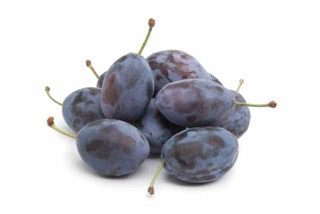

While the flesh of damsons is safe for dogs to eat in small amounts, caution should be taken due to the potential harm from the stones. The stones contain cyanide, which can be toxic to dogs if chewed and can cause intestinal obstruction.
Damsons are high in vitamins A, C, and E, which are antioxidants that protect cells from damage caused by free radicals. These nutrients are beneficial for dogs and can be included in their diet in small amounts.
The stones in damsons contain cyanide, which can be toxic to dogs if chewed. The stems and leaves of the plant also contain cyanide. If swallowed whole, the stone can cause intestinal obstruction or inflammation of the small intestine.
When feeding damsons to dogs, it is important to remove the skin and stone and only offer the fleshy part. Damsons should be given to dogs as an occasional treat in small amounts.
Damsons, also known as damson plums, are a type of fruit that are closely related to plums. They are small and oval-shaped with dark purple skin and yellow-green flesh. They are originally from the Middle East but are now grown in various parts of Europe and the United States. While the flesh of damsons is safe for dogs to eat in small amounts, caution should be taken due to the potential harm from the stones. Damsons are high in vitamins A, C, and E, which are beneficial for dogs in small amounts.
However, the stones in damsons contain cyanide, which can be toxic to dogs if chewed. The stems and leaves of the plant also contain cyanide, so it is important to only give the fleshy part of the fruit. If swallowed whole, the stone can cause intestinal obstruction or inflammation of the small intestine. Therefore, it is crucial to remove the skin and stone before feeding damsons to dogs.
Damsons are relatively affordable and easy to access when in season. An interesting serving idea is to freeze the fleshy part of the fruit and offer them to your dog as a cold and refreshing summer snack.
If you’re looking for alternatives, plums, blueberries, and blackberries are all safe and healthy options for dogs. But always ask your vet before introducing any new food to your dog's diet.
Have you ever given damsons to your dog? How did they react? Always remember to give your furry friend treats in moderation and keep them safe.
With love to your furry friend!